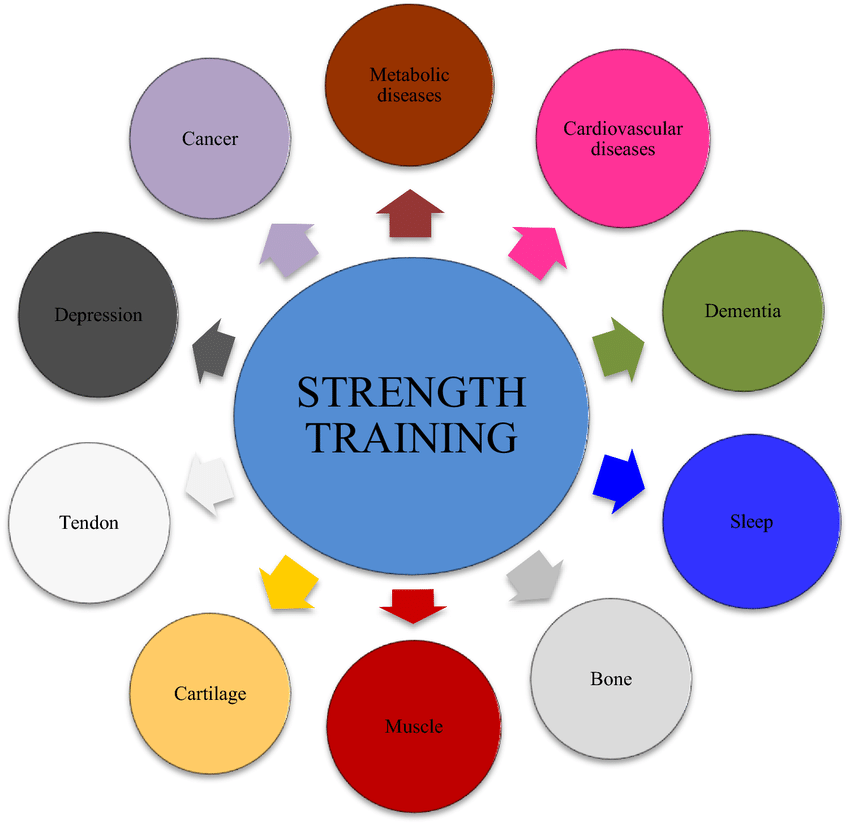strength training
Maestroni, Luca & Read, Paul & Bishop, Chris & Papadopoulos, Konstantinos & Suchomel, Timothy & Comfort, Paul & Turner, Anthony. (2020). The Benefits of Strength Training on Musculoskeletal System Health: Practical Applications for Interdisciplinary Care. Sports Medicine. 10.1007/s40279-020-01309-5.
Assessment, program design, and coaching for individuals wanting to get stronger for greater longevity and improved performance at work and home.
I help clients develop stability, whole body strength and power generation to improve body composition, daily functioning and athleticism for sports and recreation.
All ages are welcome!
RATES:
$100/ hour
Sessions:
Video: Zoom platform; FaceTime; Google Meet
Location determined by coach and client
Equipment provided by the coach if needed
Galancho-Reina, Ismael & Sanchez-Oliver, Antonio & González Matarín, Pedro & Butragueno, Javier & Bandera-Merchan, Borja & Suárez Carmona, Walter & Isidro, Felipe & Tinahones, Francisco & MACIAS-GONZALEZ, MANUEL. (2019). The Role of Muscle Tissue and Resistance Training in Cardiometabolic Health. 3. 001-0012.
What is your paradigm for long term health and wellness?
I recommend a muscle-centric (term coined by Dr. Gabrielle Lyon in her muscle-centric medicine practice) approach to support health in the second half of life.
Longevity is not simply the time span of life but much more so the quality of life which involves strength and mobility. It’s not as much about prohibitions and environmental control as it is about healthy functioning at the molecular and cellular level. To achieve this radical optimization, you need to strong whole body movement. And to have this strength, you need muscles. This implies muscles are the organ of longevity. If you care about long term quality of life, you’ve got to care about skeletal muscle. To add quality to your life, you must add muscle. And the great thing about muscle is you can add it.
One primary challenge to healthy aging is sarcopenia, the loss of muscle. It can start as early as 30. And if you’ve been neglecting your muscles before that, you could be primed for diseases commonly associated with aging.
In addition, if you’re struggling with being overweight, realize it’s not primarily about having too much fat but rather being under muscled or the underutilization of your muscles.
Most of our society’s chronic diseases have a metabolic component that comes from the lack of skeletal muscle recruitment for intense movement. Muscles play a significant role in blood glucose management. They are the largest dumping sites for glucose in your bloodstream. Muscles are also endocrine organs. Their contraction secretes myokines (hormones produced by skeletal muscle tissue affecting cognition, lipid and glucose metabolism, browning of white fat, bone formation, endothelial cell function, hypertrophy, skin structure, tumor growth, immunity, and brain health.) Many common diseases ie. obesity, diabetes, the spectrum of cardiovascular diseases, dementia, etc. have the lack of muscle as part of the root cause.
If you are not regularly working out to get stronger, start today.
Prioritize fortifying measures to increase your strength and health promoting processes.
Key activities for muscle centric health:
Resistance training to failure to produce adaptations ie. communicate to your body to get stronger
Sleep for renewal of energy and tissue
Eating enough quality protein: threshold reaching (4-6oz. piece of meat which contains 30-50g of protein) for protein synthesis


